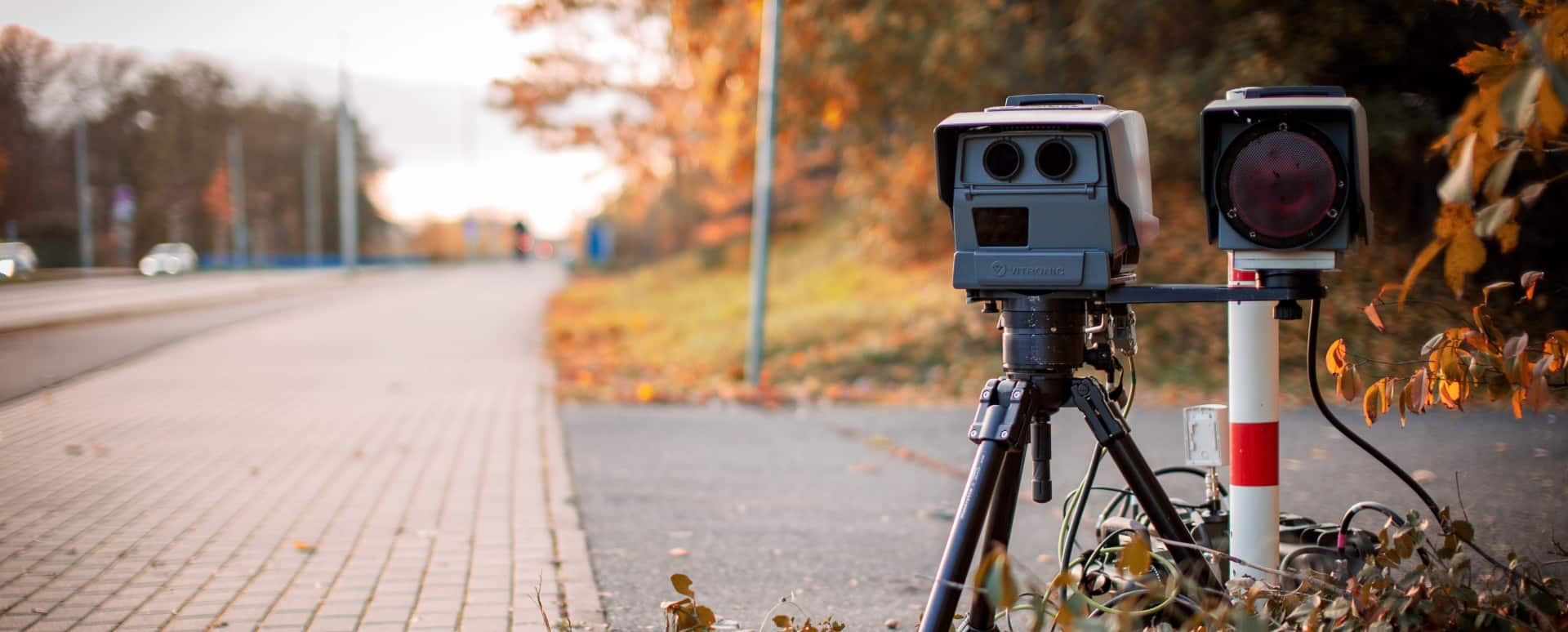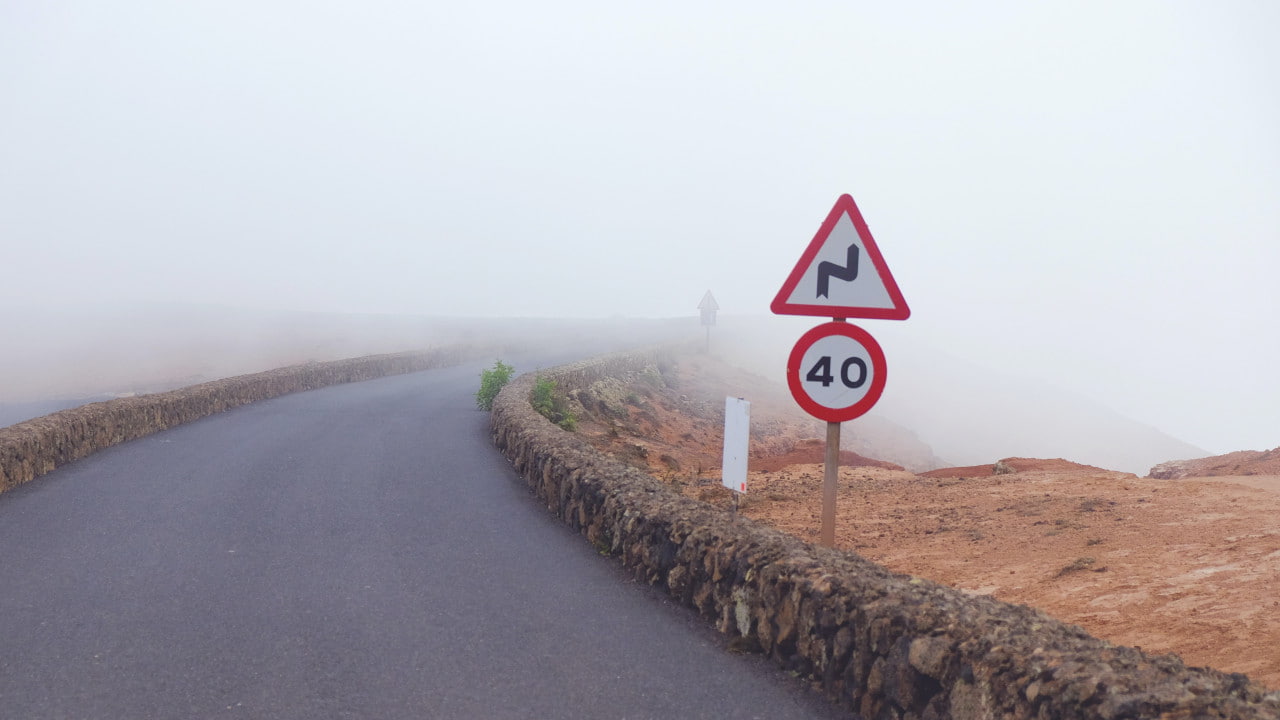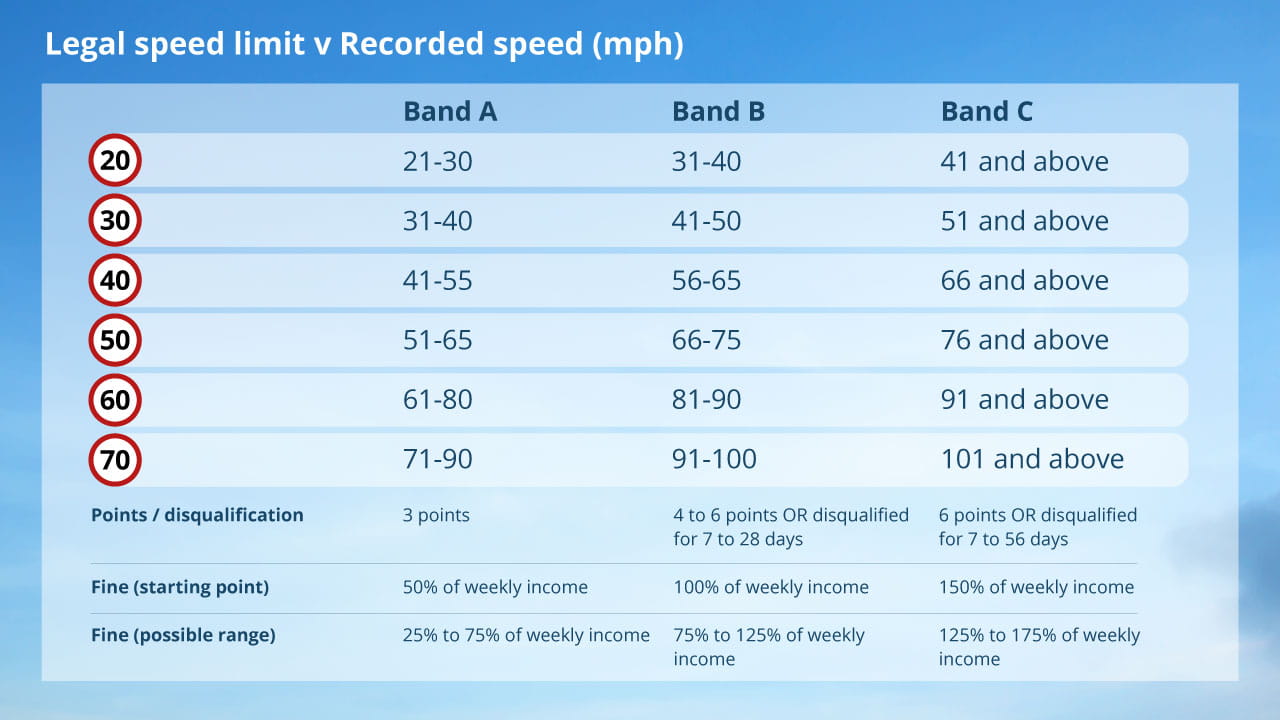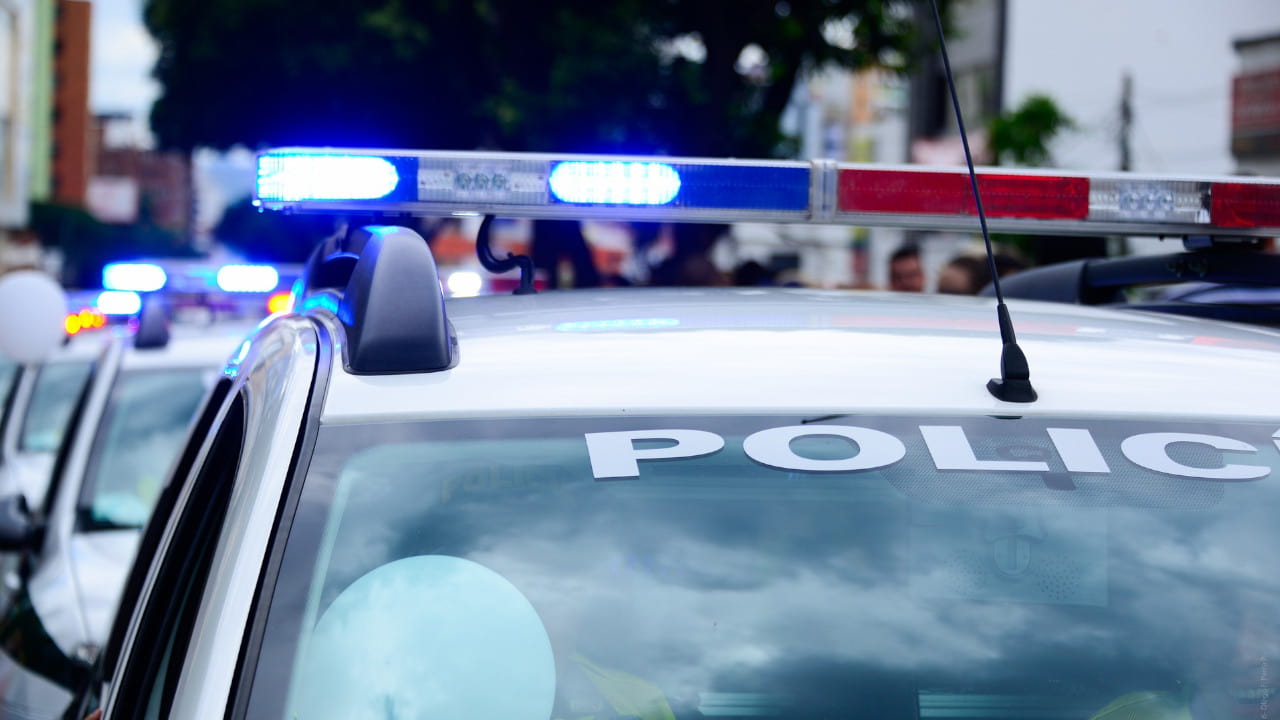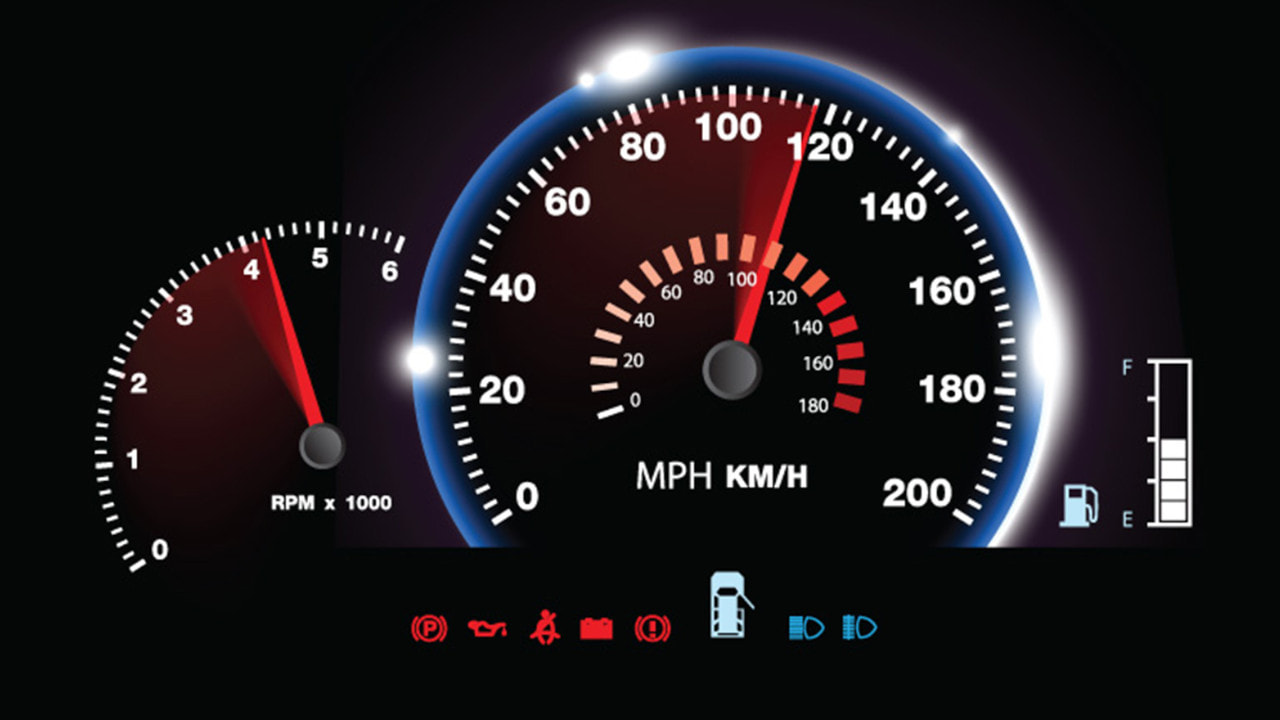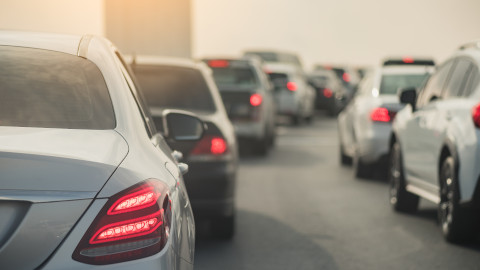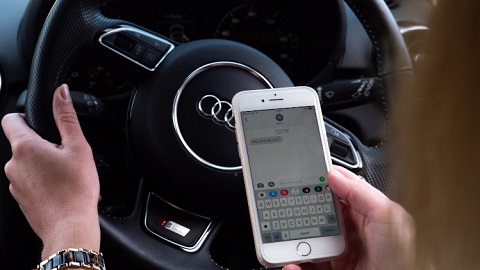Fines for speeding in the UK
A huge number of people are caught speeding every year in the UK, and there's a variety of consequences that a lot of people aren't fully aware of.
Most individuals assume it can't get worse than a fine, but the punishment for speeding can be more severe than this, with points on your licence and even disqualification from driving being a potential consequence.
This guide outlines the varying levels of punishment you could face for speeding.
- What's the punishment for speeding?
- How much are speeding fines?
- What happens after you've been caught speeding?
- Could you be banned from driving?
- How to pay or dispute a speeding fine
- Sending a mitigation letter
- FAQs
What's the punishment for speeding?
Most people are classed as making a 'minor offence', and will receive a £100 fine and three points on their licence. The alternative to points is taking a speed awareness course, which can be offered depending on eligibility.
The speed awareness courses are managed by the National Driver Offender Retraining Scheme, and they will only offer the course to individuals who haven't been convicted of other speeding offences in the last three years.
Punishments can be more severe if the police officer considers it to be a serious offence, or you're a repeat offender. Usually this is the case if you were driving considerably faster than the speed limit.
If it's deemed a more severe offence, you will most likely be prosecuted in court and the heavier punishments can be anywhere from a larger fine and more points, to driving suspensions and disqualification.
You can also face court if you ignore a speeding fine or if you choose to dispute the charge you've been given.
How much are speeding fines?
If the offence was more severe, or you ignore the speeding fine and find yourself going to court, these are the fines you could end up facing instead.
The starting point fine is the standard fine you'll get, but depending on the individual circumstance, you can be given a fine anywhere within the range shown in the table. The judge may decide to lower the fine if it's your first offence, or if it wasn't very severe, but they can also increase the fine if you were driving very dangerously, or if you have been caught speeding multiple times.
For offenders with a lower income or who are unemployed, the speeding fine calculation can depend on a variety of factors including your earning potential, savings, any benefits you receive, and your current financial circumstances.
There are a few things that may also be taken into consideration when deciding the fine, such as driving conditions and the population density in the area you were speeding. For example, you could face higher fines if you were driving in a school area or if the driving conditions were already bad due to rain or snow and would therefore be even more dangerous to be speeding in.
What happens after you've been caught speeding?
The process after you've been caught speeding depends on the severity of the offence.
Minor Offences:
If you've been caught speeding, you will be notified within 14 days. This is the case whether you've been caught by a speed camera or stopped by a police car. Even if you're pulled over by a police officer, you will normally still have to wait the 14 days for the official Notice of Intended Prosecution (NIP) to be sent to you before you can do anything about the fine.
You may be given the option for the speed awareness course instead of getting points on your licence, but this depends on eligibility.
Serious Offences:
For more severe incidents, the police can give you 28 days to pay the penalty, in which time the points will then be issued to your driving licence. Your case can then get referred to court if you don't respond or pay within the 28-day window.
You can end up going to court anyway for very serious offences, and you're also more likely to get higher penalties if this is the case. The fine can be as much as £1,000 or even £2,500 if you were caught speeding on a motorway.
Could you be banned from driving?
You can face being disqualified from driving if your case is referred to court, and it was a very serious offence.
According to the table found in the sections above, if you were driving more than 51mph in a 30mph area, you could face a ban from 7 to 56 days. This is just one example, but it would depend on the severity of the speeding offence, and the penalty is ultimately decided by the judge on these more serious cases.
In extreme instances, the ban can go up to 120 days, and you may even need to retake your driving test if this is deemed necessary by the court.
There are some factors that could be taken into account that could award you some leniency, such as you were speeding for a genuine emergency and can prove it, or if losing your licence could cost you your job.
How to pay or dispute a speeding fine
Once you have received the NIP, you can then pay the fine you've been given. The process for this depends on where you were caught speeding. If you're caught in England or Wales, you would use the Government Online Portal to pay. In Scotland, there are a few options through their own portal.
If you believe you weren't speeding, there is the option to dispute the penalty. This should only be done if there is genuine reason, and you didn't actually break the law, or you may face higher consequences than you were initially given.
You can appeal the fine by completing the correct section of the NIP, but this must be done within 28 days.
Acceptable grounds for dispute:
Usually, successful disputes are won over technicalities such as missing or incorrect information on the NIP, or incorrect or missing road signs.
You must give photographic evidence if the road signs weren't clear, and you must have a way to prove it if you are sure you weren't speeding. This can be done by going to court, where you can ask for the calibration certificate for the speed camera to be shown as evidence.
Unacceptable grounds for dispute:
There are plenty of excuses that prosecutors hear and anything about not knowing the speed limit, just being in a rush and claiming it was an emergency, or saying the roads were quiet, aren't going to help your case at all.
To dispute the penalty, there needs to be a genuine reason and if you're unsure, you should always seek professional legal advice so that you don't end up getting worse punishments than you would have if you'd just paid it to begin with.
Sending a mitigation letter
Sometimes, the excuses that wouldn't have been acceptable to dispute the penalty can be used in a mitigation letter to reduce the punishments you received.
It can be better to go to court in person, but if you're unable to attend, you can send a letter, but the most important thing is to be apologetic and accept that you were speeding and then give your reasons.
If you could potentially lose your licence and this would result in you losing your job or other more serious consequences, you can include this in the letter, and you may get leniency from the court, but this isn't guaranteed.
Frequently Asked Questions
The Notice of Intended Prosecution (NIP) should take 14 days to arrive. This is the length of time the police have to prosecute you for speeding.
Speeding fines are calculated using your weekly income, but the starting point for the fine is £100.
Points can stay on your licence from 4 to 11 years, depending on the severity of the offence. You can apply to have the points removed after four years.
You can be fined a maximum of £2,500 if you're caught speeding on the motorway, whereas on other roads the maximum is only £1,000.
There is some guidance that suggests you can go 10 percent plus 2mph over the speed limit, but this isn't a law, so you should stay under the speed limit to ensure you don't get any speeding tickets.
Yes. Any points on your licence will affect your insurance rates, as it shows insurance companies that you drive in a way that makes you more likely to be involved in accidents.
You may only be eligible for the speed awareness course if you haven't been caught for speeding already in the past three years. There are other eligibility criteria to meet, so if you aren't sure, you should check the Notice of Intended Prosecution (NIP) sent to you.
Not all speed cameras flash, so you won't always know if a speed camera has caught you speeding until you receive the Notice of Intended Prosecution (NIP).
It's completely up to you but if you are offered the speed awareness course, this will mean that you won't get points which can stay on your licence for 4 to 11 years and can increase your insurance costs, which many people prefer to avoid.
Drive safely with Evans Halshaw
It's always better to stay within the speed limit and avoid being slapped with a speeding ticket as well as all these other consequences that come along with it.
We trust we have answered all your questions on speeding fines and if you'd like more information on other handy topics, you can view our blog section which is regularly updated with fresh content and advice.

